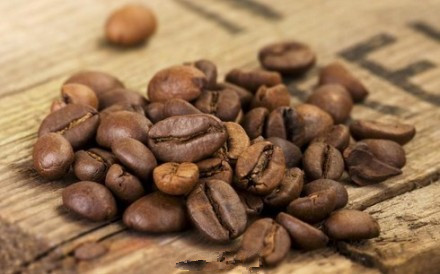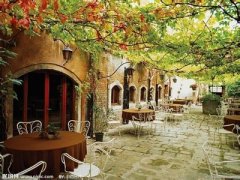The History of Coffee in China the History of Chinese Coffee Culture
According to historical records, coffee trees were first planted in Taiwan in 1884, and coffee cultivation in mainland China began in Yunnan. In 1902, a French missionary named Tian introduced seeds from "Yingong" in Binchuan County, Yunnan Province. it was successfully planted in a place called Zhu Kula, a tributary of the Jinsha River.

The commercial cultivation of coffee in Yunnan began in 1985, but the development is slow. In 1995, the Yunnan provincial government formally put Yunnan coffee cultivation into the "18th" project, and coffee cultivation has developed rapidly, and now it has become the only raw material base for high-quality coffee in China, accounting for 95% of the country's total output.
In 1884, coffee was successfully grown in Taiwan.
In 1902, Chinese mainland successfully introduced and planted coffee in Binchuan, Yunnan Province.
In 1985, Yunnan Agricultural Reclamation began to grow coffee commercially.
In 1992, UNDP assisted China to build its first modern coffee processing plant, Yunnan Coffee Factory.
In 1995, the coffee industry was included in the innovative project of biological resources development in Yunnan.
In 2003, Yunnan became the only high-quality coffee raw material base in China.
In China, people like drinking coffee more and more. The "coffee culture" that follows is full of every moment of life. People are tasting coffee at home, in the office, or on various social occasions: it is gradually associated with fashion and modern life. Coffee houses everywhere have become good places for people to talk, listen to music and rest, and coffee has gradually developed into a culture. Whether it is freshly ground coffee beans or freshly brewed hot coffee, it exudes a rich aroma and makes people intoxicated. There are many ways to savor this intoxication: espresso, cappuccino, Latay, flavored coffee; they offer a variety of options for people who regularly patronize coffee shops in Beijing, Shangjiu and other big cities in China. Chinese people also gradually like to make their own coffee. Using roasted coffee beans, filter pots and filter paper to make a cup of fresh coffee also has a different taste.
As coffee is widely known as a drink with a long history, coffee is being accepted by more and more Chinese people. Some data show that China's coffee consumption is increasing year by year, and is expected to become an important coffee consumer in the world. Today, Yunnan coffee produced in China's own land, with its noble quality and low price, will promote this trend, guide this fashion, become the Chinese people's own coffee brand, and have China's own unique coffee culture.
Related reading
Important Notice :
前街咖啡 FrontStreet Coffee has moved to new addredd:
FrontStreet Coffee Address: 315,Donghua East Road,GuangZhou
Tel:020 38364473
- Prev

The first coffee shops in the world.
----Central Asia---------------- Although originally intended for religious purposes, these places soon became centres for chess, small talk, singing, dancing and music. From Mecca, cafes spread throughout Asia.
- Next

Zhugula, the western part of Binchuan County, Yunnan Province, where coffee originated in China.
Jugula, the secret place where Chinese coffee originated, is a distant place and a story that has been around for a long time. Zhu Kula Yi language meaning: tortuous mountain road. In the deep mountains in the west of Binchuan County, Yunnan Province, there is a little-known Yi shanzhai-Zhu Kula, which has existed quietly and full of vitality for hundreds of years in the deep gorge of Baizhang River, a tributary of the Jinsha River. So far
Related
- How did the Salvadoran coffee industry develop in Central America?
- What exactly does the golden cup extraction of coffee mean?
- The Origin of Coffee flower
- [2023 Starbucks World Earth Day] there are more meaningful things besides free Starbucks coffee!
- What kind of coffee is there in Spain? 9 Flavors of Spanish Coffee
- Aromatic African coffee| Kenya's coffee culture and historical production area
- Liberica Coffee Bean knowledge: the characteristics of Liberian Coffee beans of the three original species of Coffee beans
- The origin and formula of Spanish latte introduces the taste characteristics of Bombon coffee in Valencia, Spain.
- How to adjust the solution of over-extracted coffee
- What is the tasting period of coffee beans? What is the period of coffee and beans? How should coffee wake up and raise beans?

